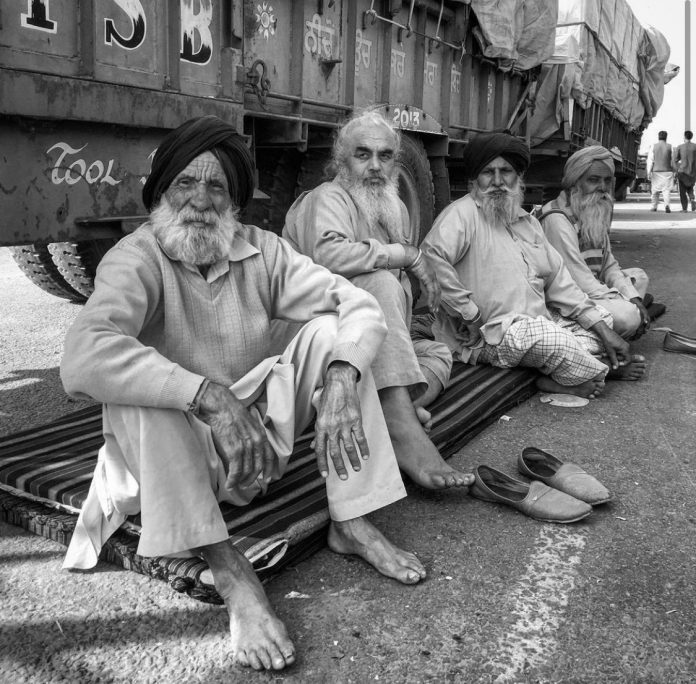
You are no more than a bubble,
So transitory-
You’ll disappear in the twinkling of an eye
As the moving star vanishes
Even while you gaze at it.
Kabir
Yes, Kabir is right; we are no more than a bubble. This is something the coronavirus has taught us in 2020. Well, it can be said, the age of techno-science with its triumphant modernist agenda of human supremacy will come forward with the vaccines ; and we will become ‘normal’ once again. Yet, if we allow ourselves to be contemplative and reflexive, and think deeply about the meaning of existence in 2020, it is difficult to negate our psychic bewilderment, existential insecurity and fundamental uncertainty of living. In a way, the virus demolished the modernist notion of ‘order’—the mathematics of a perfectly controlled society. Think of it. Everything stopped—the thrill of ‘speed’ associated with modernity, the notion of ‘productivity’ related to capitalism, and the power of ‘predictability’ or ‘future’ inherent in the unilinear notion of time and ‘progress’. In a way, the ‘taken-for-granted’ world crumbled. With masks, sanitizers and ‘distancing’, we tried to survive merely biologically while losing the very art of living. Death lost its grace and meaning, and became merely a number; private hospitals revealed their market-driven greed—the crude urge to earn money even at the time of the pandemic; crematoriums became chaotic and over-crowded; and in the absence of the human touch, we became disoriented and lonely. And the virus didn’t escape even the rich and the privileged. From Amitabh Bachchan to Amit Shah—it was everywhere. Did the crisis generate a sense of humility, love and compassion? The answer, it seems, is not easy.
In fact, amid this psychic bewilderment, we also felt the harshness of the naked society with its gross inequality. The flux of the migrant workers—hungry, crippled and humiliated—moving from Surat, Ahmedabad and Delhi to unknown villages in Bihar, Jharkhand and West Bengal demythologized the notion of ‘Atamanirbhar Bharat’ the supreme leader as the ultimate ‘messiah’ often propagates. Not solely that. The age-old practice of untouchability in this caste-ridden society acquired yet another dimension. The gated communities in big cities closed their doors; and ‘maids’ and ‘servants’ were seen to be the carriers of the virus. Moreover, those who got the virus suffered not merely physically; quite often, their neighbours began to suspect and stigmatize them. And amid economic crisis, joblessness and survival anxiety, ‘work’— for the white collar professional class— acquired a new connotation; the home became the office. Education too changed its character altogether. With Zoom and Google Meet, it became a software endeavor. And despite the mythology of ‘online education’, the digital divide, as the narratives of students’ suicides indicated, was difficult to escape.
For the ruling regime, even a crisis situation like the pandemic was used as an opportunity to spread the chains of surveillance. It continued to activate the agenda of criminalizing dissent. We were asked to believe that university students, professors and social activists were the ones who initiated or encouraged the Delhi riots .In this hyper-competitive game of militant nationalism, Yogi Adityanath, it is obvious, could not lag behind. He popularized yet another toxic vocabulary—‘love jihad’: a weapon to spread the virus of Islamophobia. As everything was turned into its opposite, politics became increasingly shallow and dramaturgical. Yes, in a media-saturated world, Mr. Narendra Modi could be seen everywhere. A ‘religious’ Modi performing bhoomi puja at the site of the Ram temple in Ayodhya; a ‘nationalist’ Modi at the site of Indo-China border walking with the army Generals; or a ‘visionary’ Modi laying the foundation stone of the new Parliament house in Delhi: there seems to be no end to the act of packaging the ‘brand’. And even Mr. Amit Shah didn’t lag behind. West Bengal has to be conquered in 2021; Mamata Banerjee’s party has to be broken; Bengali symbols and icons have to be appropriated; and we must believe that Mr. Shah loves Rabindrasangeet, the ecstasy of baul music, and the ideals of Swami Vivekananda and Netaji Subhas Chandra Bose. When nothing matters more than winning the elections at any cost, politics becomes cinematic. We too are transformed from reflexive beings to mere consumers of ‘images’, ‘brands’ and ‘products’.
Yet, it is difficult to kill the human spirit: our longing for justice, dignity and freedom. It is difficult to fool the entire population through the glitz of media simulations, or frighten them through the epidemic of sedition charges or the psychic violence perpetuated by the notorious troll army. Well, the phenomenon called Shaheen Bagh was immensely promising: ordinary Muslim women resisting a hyper-masculine discourse of majoritarian nationalism with the spirit of Gandhian satyagraha. However, because of the pandemic, the movement had to be withdrawn. The ruling regime, because of its characteristic intoxication with power, did not visualize the possibility of yet another movement –and that too at a time when the pandemic-induced fear restrains human interactions. Yet, at the end of 2020 we saw once again the arrival of the language of resistance—an environment of fearlessness, or a determined urge to pressurize the government to abolish the three farm laws. Neither the fear of the virus nor the shivering cold could prevent thousands of farmers from Punjab, Haryana and other parts of the country to come together, and engage in a nonviolent movement with extraordinary clarity. Even though all sorts of attempts were made to castigate this movement as a ‘conspiracy’ launched by ‘khalistanis’, ‘Maoists’ and ‘tukde tukde gang’, the spirit of people, far from withering away, is regenerating itself everyday .Is it that the non-dialogic ruling regime fears this creative life-energy of ordinary people?
Can 2021 surprise us? Can it inspire us to cherish the values of love and humility, equity and justice, and art of listening and dialogue? Can it make us realize that the cult of narcissism or authoritarian personalities is essentially against the spirit of democracy?
Let us celebrate the New Year with this heightened reflexivity.
Avijit Pathak teaches Sociology at JNU










